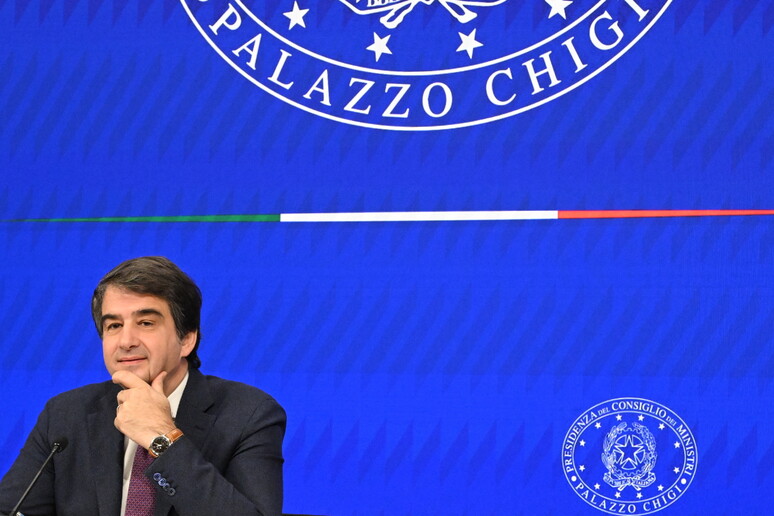A draft decree on implementation of Italy's EU-funded post-Covid national recovery and resilience plan (NRRP) includes a clampdown on implementing bodies to make them more accountable, sources said on Monday.
The so-called 'omnibus' package, which could come before the cabinet for examination and approval on Monday, enables the government to enact replacement powers in the event of disalignment between the schedule for interventions and the data communicated by the implementing bodies for official monitoring.
In addition, under the provisions of the draft decree, the titleholder of the intervention is required to return the funding received in the event that European Commission technical experts ascertain "the omission or incomplete achievement of objectives".
The decree also reportedly includes provisions for combating fraud, as well as on university housing, tax incentives for the industrial transition, document digitisation within public administrations and recruitment within the judiciary.
It also allegedly contains a chapter on labour that includes measures to prevent and combat irregular employment, a hot topic in Italy after a structural collapse at a building site in Florence on February 16 left five construction workers dead and three more seriously injured.
Specifically, the provisions are said to include the introduction of a compulsory points-based 'licence' for contractors and self-employed workers operating at temporary or mobile construction sites, issued by the National Labour Inspectorate following registration with the chamber of commerce on fulfilment of certain conditions including training obligations and possession of a valid certificate of social security contributions compliance (DURC), risk assessment document and tax compliance certificate.
Licence holders would start with 30 points and be allowed to work with a minimum of 15 points.
Italy's revised NRRP to make the economy greener, more modern and less dependent on Russian fossil fuels is worth a total of 194.4 billion euro, of which 122.6 billion euro in loans and 71.8 billion euro in grants.
It covers 66 reforms - seven more than the original plan - and 150 investments that must be completed by the deadline of 2026.
Late last year the country received the fourth installment of payment worth 16.5 billion euro, taking to around 90 billion euro the total amount paid out so far by Brussels.
However, earlier this month the State Audit Court reported that there have been several reports of irregularities in implementation.
"The preparation of the contextual rules having been completed, the implementation of the NRRP is now in full swing and there are already several reports of irregularities," said general prosecutor Pio Silvestri in his report for the inauguration of the judicial year.
The general prosecutor highlighted in particular reports of "undue receipt or incorrect use of funds by the implementing bodies, irregularities in the receipt of contributions sub specie for works that do not conform to plans or show very significant delays in their implementation".
Photo: European Affairs and NRRP Minister Raffaele Fitto.
ALL RIGHTS RESERVED © Copyright ANSA











